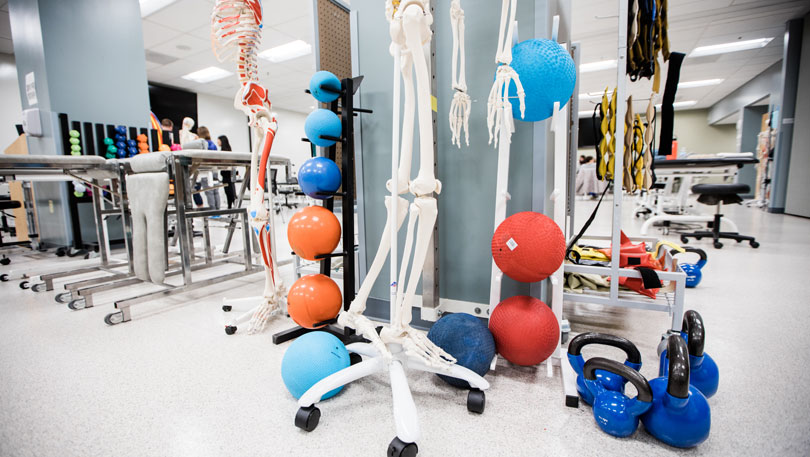Technical Standards And Reasonable Accommodation
 Technical Standards
Technical Standards
The Doctor of Physical Therapy (DPT) Program is committed to fostering a diverse, inclusive, and accessible learning environment. In compliance with the Americans with Disabilities Act (ADA), applicants are not required to disclose a disability during the admissions process. We value the unique contributions of students with disabilities and recognize the importance of a healthcare workforce that reflects the diversity of our society. We encourage students with a disability to contact the Office of Disability and Access early to request reasonable accommodations. To successfully meet the degree requirements of the DPT program, all enrolled students must meet the following technical standards for academic and clinical education, with or without reasonable accommodations. Reasonable accommodations do not provide cognitive support or clinical knowledge, substitute for essential clinical skills, or supplement clinical or ethical judgement. Reasonable accommodations will not eliminate essential curricular elements or requirements that have been established as part of the DPT curriculum. These technical standards are in addition to the University standards of behavior and academic conduct set forth in the University Academic Conduct Code, and the Doctor of Physical Therapy Code of Conduct.
Observation
Students must be able to accurately acquire and interpret information through visual, auditory, and tactile means or the functional equivalent, from classroom, laboratory and clinical environments in order to determine a patient’s conditions.
Communication
Students must be able to communicate effectively and sensitively with patients to elicit information regarding mood, activities, and symptoms, and to interpret and respond appropriately to nonverbal cues. They must also communicate clearly, efficiently, and professionally with the healthcare team through in-person, written, electronic, and nonverbal means for safe and effective delivery of care.
Sensory and Motor Function
Students must possess sufficient motor and sensory function to effectively manage the patient encounter from examination and intervention, with or without reasonable accommodations. Students must be able to provide therapeutic care that is safe for the patient, any caregivers, and themselves. This includes, but is not limited to, the performance, description or direction of others to safely lift, transfer, guard, and position patients. In addition, many physical therapy interventions require advanced applied skills to safely perform patient care including manual therapy, wound debridement, and treatments that use accessory devices.
Intellectual Abilities
Students must be able to collect, measure, calculate, reason, analyze, integrate, and synthesize information. They must effectively develop diagnostic impressions and formulate appropriate therapeutic plans by integrating patient history, clinical examination findings, and evidence-based practice.
Behavioral and Social Attributes
Student must possess the psychological ability required for the full utilization of their intellectual abilities, for the exercise of good judgment, for the completion of all responsibilities inherent to diagnosis and care of patients, and for the development of mature, sensitive, and effective relationships with patients, colleagues and other health care providers. Students must be able to tolerate physically and mentally taxing workloads and function effectively under stress. They must be able to adapt to a changing environment, display flexibility and function in the face of uncertainties inherent in clinical practice.
Professionalism/Ethics
Consistent professionalism, integrity, and empathy are essential for successful participation in academic and clinical settings. Students must display ethical behaviors commensurate with the role of a physical therapist in all interactions with patients, faculty, staff, students, and the public. Students are expected to understand the legal and ethical aspects of the practice of physical therapy and function within the legal, ethical standards, and core values of the profession.
Reasonable Accommodation
Applicants and students should review the technical standards for the DPT program carefully. We encourage applicants and students who may require accommodations to complete the degree requirements to contact BU Disability and Access Services for a confidential consultation. The university provides reasonable accommodations to students on a nondiscriminatory basis consistent with the Americans with Disabilities Act (ADA). It is important to note we are not required to provide requested accommodations that would fundamentally alter the essential qualifications, technical standards, or other academic requirements of the program, or result in an undue financial or administrative burden.